Through eight outstanding editions, Kanski’s Clinical Ophthalmology has been the classic specialty textbook, providing the perfect ophthalmology foundation for trainees and a valuable reference source for experienced practitioners. Building on the previous edition by Dr. Brad Bowling, Dr. John Salmon from Oxford University has comprehensively revised the textbook. The 9th Edition retains Dr. Kanski’s highly effective format of succinct text and visually dynamic presentation, providing authoritative, focused guidance on the diagnosis and management of ophthalmic disorders. Extremely well organized and comprehensive in scope, this visually stunning book reflects the latest advances in the field, facilitating quick comprehension to enhance learning, aid exam preparation and guide clinical practice. As a general ophthalmic textbook, this is the gold standard.
Kanski’s Clinical Ophthalmology A Systematic Approach
KShs 24,646.00
Through eight outstanding editions, Kanski’s Clinical Ophthalmology has been the classic specialty textbook, providing the perfect ophthalmology foundation for trainees and a valuable reference source for experienced practitioners. Building on the previous edition by Dr. Brad Bowling, Dr. John Salmon from Oxford University has comprehensively revised the textbook. The 9th Edition retains Dr. Kanski’s highly effective format of succinct text and visually dynamic presentation, providing authoritative, focused guidance on the diagnosis and management of ophthalmic disorders. Extremely well organized and comprehensive in scope, this visually stunning book reflects the latest advances in the field, facilitating quick comprehension to enhance learning, aid exam preparation and guide clinical practice. As a general ophthalmic textbook, this is the gold standard.
2 in stock
| SKU: | 9780702077111 |
|---|---|
| Categories: | Medicine & Health Sciences, Ophtalmology |
Related products
-
Community-Based Participatory Research for Health: Advancing Social and Health Equity 3rd Edition
KShs 7,840.00The definitive guide to CBPR concepts and practice, updated and expanded
Community-Based Participatory Research for Health: Advancing Health and Social Equity provides a comprehensive reference for this rapidly growing field in participatory and community-engaged research. Hailed as effective by the Centers for Disease Control and Prevention, CBPR and CEnR represent the link between researchers and community and lead to improved public health outcomes.
-
Introduction to Epidemiology
KShs 4,820.00Recognized by Book Authority as one of the best Public Health books of all time, Introduction to Epidemiology is a comprehensive, reader-friendly introduction to this exciting field. Designed for students with minimal training in the biomedical sciences and statistics, this full-color text emphasizes the application of the basic principles of epidemiology according to person, place, and time factors in order to solve current, often unexpected, and serious public health problems.Students will learn how to identify and describe public health problems, formulate research hypotheses, select appropriate research study designs, manage and analyze epidemiologic data, interpret and apply results in preventing and controlling disease and health-related events. With real-world examples in the form of case studies and news files in each chapter, Introduction to Epidemiology is an accessible and effective approach to learning epidemiology.The Eighth Edition features:- Same organization as the prior edition allowing for easier transition- New or expanded coverage of the models of causation, methods of age adjustment, age-period cohort models, incubation and latency periods, and receiver operating characteristic (ROC) curves- Clearer connection between statistical inference and causal inference- New and updated practical examples and News Files help solidify concepts and show real-world application- Updated tables and figures throughout- Access to Navigate 2 online learning materials, including a comprehensive and interactive eBook, student practice activities and assessments, learning analytics reporting tools, and more- A built-in adaptive learning feature enables students to take self-assessments before or after reading a chapter. Based on their performance they can map out their own custom study plan that directs them to the areas of the text to review.
-
Contact Lens Practice 3rd Edition
KShs 29,400.00In this thoroughly revised and updated third edition of Contact Lens Practice, award-winning author, researcher and lecturer, Professor Nathan Efron, provides a comprehensive, evidence-based overview of the scientific foundation and clinical applications of contact lens fitting. The text has been refreshed by the inclusion of ten new authors – a mixture of scientists and clinicians, all of whom are at the cutting edge of their specialty. The chapters are highly illustrated in full colour and subject matter is presented in a clear and logical format to allow the reader to quickly hone in the desired information.
-
The Behavioral Health Specialist in Primary Care: Skills for Integrated Practice
KShs 12,600.00Patients with chronic conditions often need psychosocial support and brief counseling to help them make the lifestyle and behavioral changes required to prevent disease complications. This innovative text, with contributions from respected clinicians and researchers in all arenas of behavioral health, provides comprehensive training for all health professionalsóincluding those in medicine, nursing, social work, mental health, and clinical and health psychologyówho desire targeted evidence-based training in behavioral health skills. Rich case examples drawn from typical patient presentations demonstrate the relationship between physical and psychological health and the complexity of behavioral change in chronic illness.
This text is a timely, relevant, and practical resource for all members of the primary care team. It prepares team members to work in the model of patient-centered integrated care in accordance with the recommendations of the Affordable Care Act (ACA) and the National Committee for Quality Assurance (NCQA) medical home standards for identifying patient needs and providing coordinated and comprehensive patient care. The book focuses on knowledge and skills needed for working with the most common chronic conditions such as diabetes, obesity, chronic pain, cardiovascular conditions, sleep disorders, geriatric conditions, cancer-related conditions, and substance abuse. It includes chapters on epidemiological trends in chronic illness and systems medicine. Theories of health behavior and behavioral change and evidence-based interventions provide a foundation for skill development, followed by detailed coverage of the requirements for behavioral management of specific chronic conditions. Sample referrals and consultation notes provide concrete examples of how the behavioral health specialist might respond to a referral.
KEY FEATURES:
- Provides comprehensive graduate-level training for the role of Behavioral Health Specialist
- Describes the health promotion and counseling skills needed to function as part of an integrated health team
- Focuses on proficiencies needed for working with common chronic conditions
- Addresses the psychosocial components of primary care disorders
- Includes case examples demonstrating the relationship between physical and psychological health and the complexity of behavioral change in chronic illness
-
The Brain That Changes Itself
KShs 1,095.00An astonishing new science called neuroplasticity is overthrowing the centuries-old notion that the human brain is immutable. Psychiatrist and psychoanalyst Norman Doidge, travelled around the US to meet both the brilliant scientists championing neuroplasticity and the people whose lives they’ve transformed – people whose mental limitations or brain damage were seen as unalterable. We see a woman born with half a brain that rewired itself to work as a whole, blind people who learn to see, learning disorders cured, IQs raised, aging brains rejuvenated, stroke patients learning to speak, children with cerebral palsy learning to move with more grace, depression and anxiety disorders successfully treated, and lifelong character traits changed. Using these marvellous stories to probe mysteries of the body, emotion, love, sex, culture, and education, Dr. Doidge has written an immensely moving, inspiring book that will permanently alter the way we look at our brains, human nature, and human potential.
-
An Introduction to Forensic Genetics 1st Edition
KShs 12,600.00An Introduction to Forensic Genetics is a comprehensive introduction to this fast moving area from the collection of evidence at the scene of a crime to the presentation of that evidence in a legal context. The last few years have seen significant advances in the subject and the development and application of genetics has revolutionised forensic science.
This book begins with the key concepts needed to fully appreciate the subject and moves on to examine the latest developments in the field, illustrated throughout with references to relevant casework. In addition to the technology involved in generating a DNA profile, the underlying population biology and statistical interpretation are also covered. The evaluation and presentation of DNA evidence in court is discussed as well with guidance on the evaluation process and how court reports and statements should be presented.
- An accessible introduction to Forensic Genetics from the collection of evidence to the presentation of that evidence in a legal context
- Includes case studies to enhance student understanding
- Includes the latest developments in the field focusing on the technology used today and that which is likely to be used in the future
- Accessible treatment of population biology and statistics associated with forensic evidence
This book offers undergraduate students of Forensic Science an accessible approach to the subject that will have direct relevance to their courses. An Introduction to Forensic Genetics is also an invaluable resource for postgraduates and practising forensic scientists looking for a good introduction to the field.
-
District Laboratory Practice in Tropical Countries
KShs 21,420.00Changes in the organization of health services in developing countries have led to district levels assuming more responsibility for the planning, delivery and quality of community health care. This fully up-dated new edition has been produced to help those working in the district laboratory, and those responsible for the organization and management of community laboratory services and the training of district laboratory personnel. Replacing the previous publication Medical Laboratory Manual for Tropical Countries, this book provides an up-to-date practical bench manual, taking a modern approach to the provision of a quality medical laboratory service.
-
Introduction to Information Systems for Health Information Technology, Fourth Edition
This comprehensive textbook introduces students to the essential role of information systems in today’s healthcare environment. The Fourth Edition of Introduction to Information Systems for Health Information Technology provides a clear, accessible overview of healthcare IT systems, data management, and the critical importance of health information technology (HIT) in delivering safe, efficient, and high-quality patient care.
Aligned with current CAHIIM and AHIMA curriculum competencies, the book prepares students for careers in health information management (HIM) by exploring real-world applications of EHRs (electronic health records), interoperability, data governance, privacy and security, system implementation, and analytics.
Filled with up-to-date examples, key terms, review questions, and engaging visuals, this edition is ideal for HIT and HIM students preparing for certification and clinical practice in a technology-driven healthcare world.

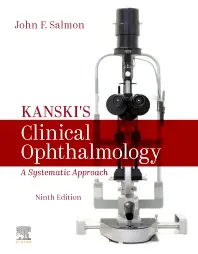
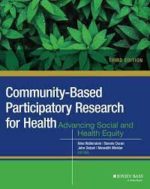


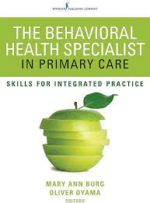
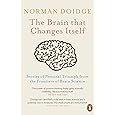

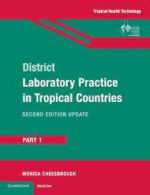
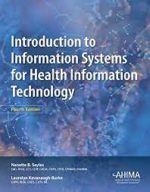
Be the first to review “Kanski’s Clinical Ophthalmology A Systematic Approach”